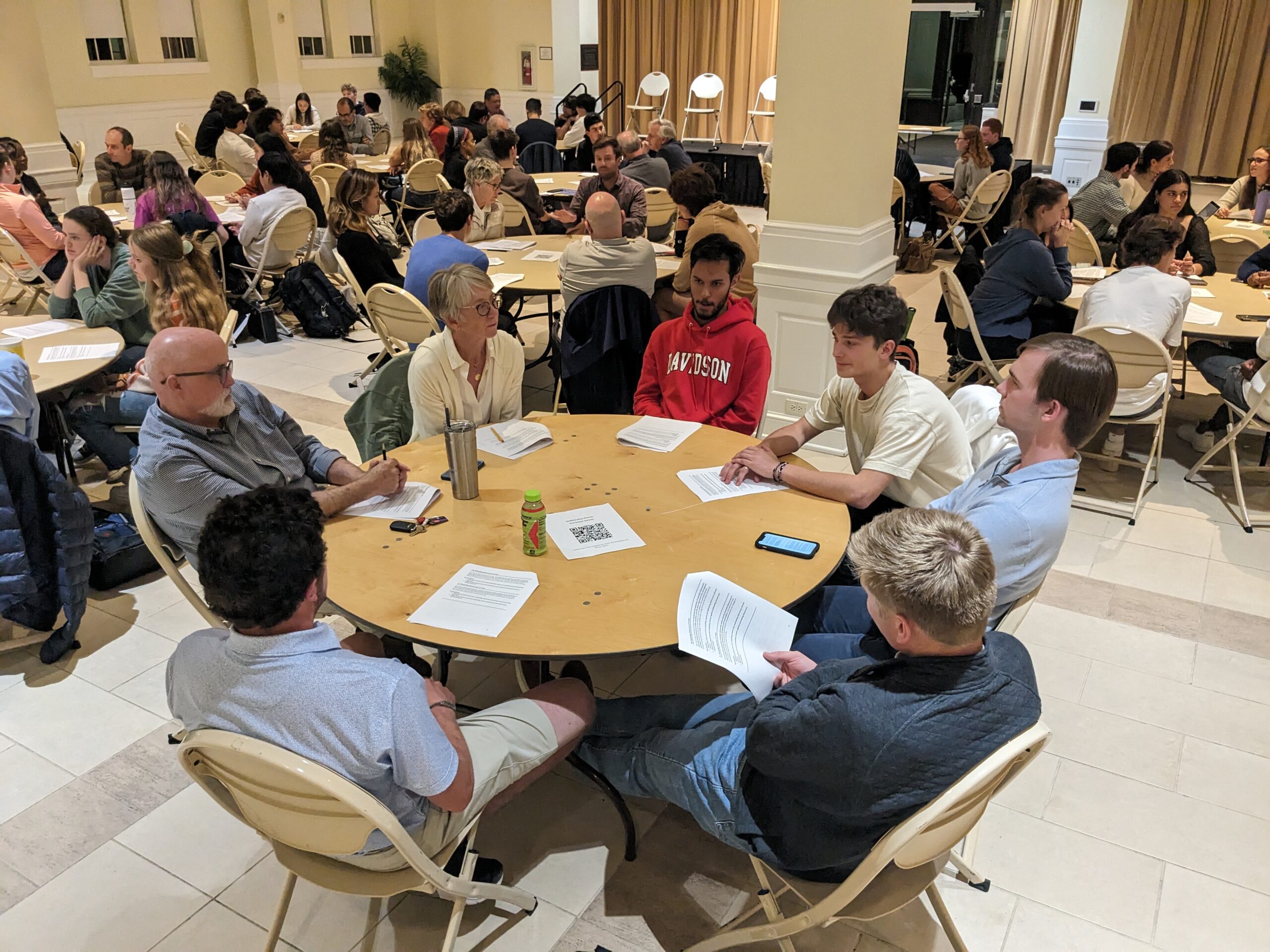
Florian Moser ’26 (DCI Fellow)
My initial interest in the Deliberative Citizenship Initiative was sparked last year in a conversation at the DCI kickoff party in the College Union. My group and our facilitator argued about a geopolitical topic on which I held a strong opinion. Therefore, I was trying to defend my point of view and counterargue opposing opinions. At that point, our facilitator interrupted me to ensure everybody could speak, forcing me to listen to other ideas. At that moment, I started to understand the difference between deliberation and debate. I want to compare these two approaches since, in today’s society, debate is the more prominent approach to conversation.
Confrontational vs. Collaborative: Debates and Deliberation
Debates are typically confrontational, with participants firmly entrenched in their positions, aiming to prove their viewpoint’s superiority. In contrast, deliberation is a more open and cooperative process focused on understanding different perspectives, reaching common ground, and appreciating diverse ideas. The key distinction lies in how people react to opposing views. In debates, individuals often defensively cling to their positions, sometimes at the expense of genuinely listening to others. Deliberation, however, encourages active listening and open-mindedness, fostering a collaborative environment that values constructive dialogue and the exploration of different viewpoints.
Since we are so used to debating, it is common for participants of DCI events to recognize the significant difference between deliberation and debate for the first time. In my first mock deliberation, during a DCI facilitator training, my facilitator ensured that every participant expressed their ideas in every round of the deliberation. This strong emphasis on equal-length speech contributions from all deliberations lets people formulate their ideas who might not be used to getting the chance to speak up.
Instead of getting stuck in a debate about two specific viewpoints, participants gain many ideas they might not have considered before. The exchange of ideas and the practice of leaning into a different perspective holds two advantages. First, it is more valuable for the deliberators to gain new ideas, improving their worldview in the long run, than just winning an argument. Second, deliberations help to foster soft skills, strongly contributing to respectful and productive conversations. These soft skills help create a respectful and constructive environment in the long run, whether in debates or deliberations.
Here, I want to list some critical soft skills:
- Active Listening: In deliberation, listening isn’t passive; it’s an active effort to understand and appreciate the viewpoints of others.
- Open-Mindedness: Participants should be open to changing their views based on new information or insights.
- Respectful Communication: Encourage respectful and civil discourse, where participants can express themselves without fear of personal attacks.
- Seek Common Ground: Look for shared values and common objectives as a starting point for finding solutions.
- Value Diverse Perspectives: Recognize that diversity of thought leads to more creative and effective solutions.
The Benefits of Deliberation
Deliberation offers several advantages over debate. It promotes collaboration, reduces polarization, and fosters a sense of unity among participants. Moreover, drawing on broader ideas and perspectives can lead to better decision-making. In today’s complex and interconnected world, where many of the challenges we face require innovative solutions, deliberation is a practice that should be embraced and celebrated. It allows us to move beyond the limitations of our own perspectives and tap into the collective intelligence of diverse groups.
Conclusion
While debate has its place and can be a valuable tool for exploring differences, deliberation shines as a means to appreciate and harness new ideas. In deliberation, we see the true power of open-mindedness, empathy, and collaboration, and these qualities can help us navigate the complexities of our rapidly changing world. So, let us strive to embrace deliberation, for in doing so, we unlock the potential for collective growth, understanding, and progress.
